After a family’s dossier is logged in and they’re officially LID, our agency provides a resource packet containing information about what to expect in the coming months, different scenarios for Gotcha/Family Day, what travel will look like, and more. When we received that packet for our first adoption, of course, I practically memorized it. That is, except for one of the final pages, entitled Post Adoption Depression Syndrome.
My husband, Derek, and I actually remember commenting on it, something to the tune of “that’s a thing?” and filed it away with a stack of papers to go through later. Both of us were confident that it wouldn’t be an issue. After all, we were adopting our first child, I would no longer be working, by all accounts our son was happy, healthy, and fairly easygoing.
I didn’t see how I could possibly be even a tiny bit depressed, because we finally would be home with our son. I wasn’t naïve; I knew there would be adjustments and bonding for all of us.
But depression? Anxiety? Not here.
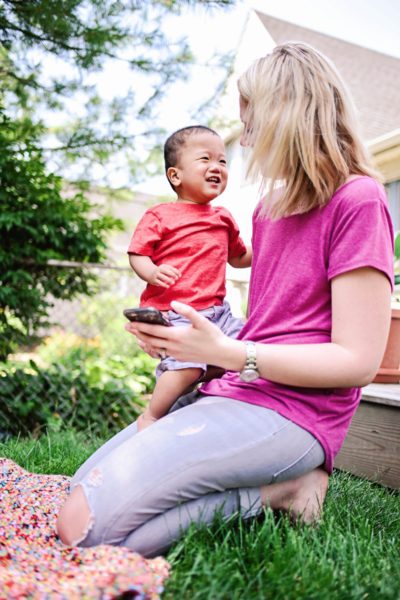
When we got home, I felt like I was on top of the world. We were going to have such a great summer, and I’d be such a great mom with a schedule, and play dates, and reading books, and trips to the park and the zoo and ice cream and… you get my drift.
Jet bonded to us incredibly quickly, and we loved him instantly. We were once asked if it felt like we were babysitting, and we answered no, we were his parents. One day we weren’t, and the next day we were, and that was that.
Except…
I thrive on routine.
I like predictability.
I crave control.
Parenting an adopted child with a special need does not allow for any of those things.
There are a number of little things that contributed to my slow decline in mental health, but here are a few that stick out:
Six weeks after being home, our CHD-repaired son went from a congested cough to gasping for breath in less than five minutes, which earned us a trip, transportation included, from our prompt care to the hospital ED. No one had ever told me that with his heart condition we should bypass prompt care. I had zero idea what to do in these types of emergencies. I only knew first aid and CPR — not helpful in this situation.
Cue feelings of worthlessness.
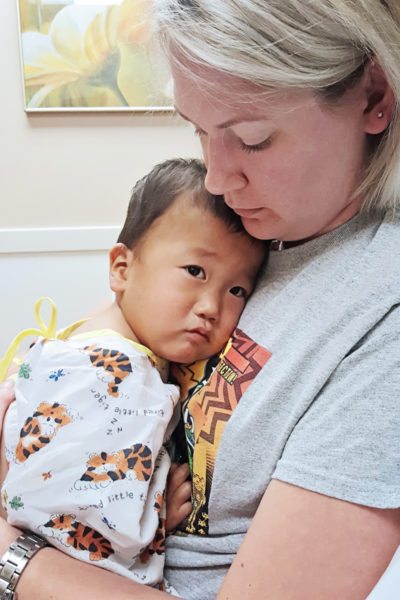
A few weeks later, we visited the library where I used to work for Toddler Time. Jet didn’t listen to any of the story, refused to stay in the little toddler area with toys, and instead was intent on destroying every shelf at his height — and there were a lot of them. He screamed when I put him back in the stroller while I tried to fix everything and just leave. A fun outing turned into a toddler-made disaster.
Cue feelings of extreme irritability.
Around this time, a very good and trusted friend — who has not adopted but recognized something was off — kindly tried to tell me that I should make an appointment with my doctor or suggested seeing a therapist. By this point, we had been home almost four months, summer was over, and I was hanging on by a thread some days, but I had it under control. Thank you for the advice, I’ll take your words into consideration. I’m fine. I was dropping weight and living on caffeine, but I was functioning just fine.
Cue extreme weight change.
Two days later, we found ourselves discharged from the Emergency Room again, with the same song and dance from August. My husband was picking up prescriptions and I was crying and rocking our sobbing, vomit-covered son because that’s what would happen when he would have these breathing episodes.
As soon as Derek came home, I handed him Jet so I could wash all of the dirty linens and myself and, while still crying, asked, “Was this a mistake? Should we have adopted? I don’t know what I’m doing.”
Cue feelings of powerlessness.
The following week, other than bringing Jet to the pediatrician, which made me break out into a cold sweat even though it was a beautiful 75 degree day in October, I didn’t leave the house, at all.
Cue not wanting to be around other people.
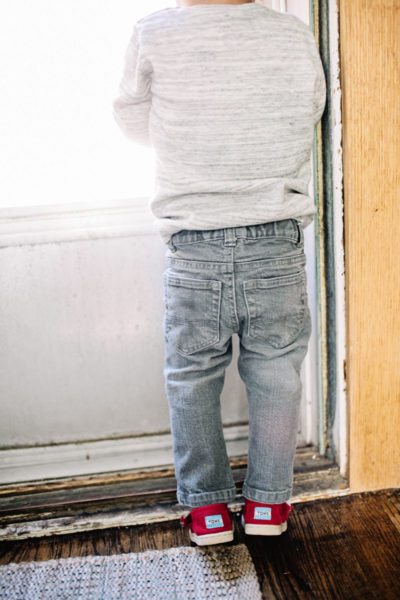
The week after that, I barely got out of bed except for basic necessities like the bathroom, or changing diapers, or making Jet breakfast and lunch. We watched a lot of Mickey Mouse Clubhouse. I couldn’t sleep because every cough and noise woke me up. I couldn’t eat because I felt so sick from my lack of sleep.
Cue sleeplessness.
If you would have read any of my posts on Instagram or my blog or our Facebook group, not even an iota of what was really going on behind the scenes was revealed. I knew there was something wrong with me, but more than anything I hated (and still do) admitting weakness. I suddenly remembered, vaguely, that our agency had provided information on this thing called Post Adoption Depression.
I found the printed out version, somewhere in the mounds of paperwork, and realized how many of these symptoms fit my current situation. I texted that same friend, who then brought me two chocolate donuts and a number for a local counseling center and psychiatrist on her way home from work. I made an appointment with that doctor and a therapist, which was one of the hardest things I’ve ever done, and we worked to find a solution that would help.
I just wanted things to go back to normal and, I finally realized, I couldn’t do it by myself.
I now see a therapist on a semi-regular basis. Sometimes more frequently, sometimes less. We’ve identified triggers, and work on ways to get past the roadblocks that still occasionally pop up and take the joy out of raising our strong and brave boy. My husband has worked on ways to understand why, sometimes, I just need a time out.
I’ve found hobbies that are just mine, and friends that understand when some days I can’t just can’t. I also take medication, and will for the foreseeable future because, for me, the depression and anxiety that manifested after we adopted Jet are not just “in my head.” Depression is a chemical imbalance in the brain. Sometimes, it can be treated with therapy and counseling, and other times your body needs help balancing the hormones that cause it.
The biggest thing I’ve learned? There is no shame in either of these treatment options. None.
Over a year later, and less than six weeks away from adopting our second child from China, I reread the page about Post Adoption Depression. I know the signs to watch for. My husband knows the signs to watch for. In fact, here’s the list of some symptoms of PADS, so you know the signs to watch for (courtesy CCAI Resource Packet):
• Loss of interest in being around others
• Often on the verge of tears
• Difficulty with concentration or making decisions
• Fatigue and loss of energy
• Difficulty sleeping or increased need for sleep
• Significant weight change
• Recurring thoughts about death or suicide
• Excessive guilt
• Feeling powerless
• Feeling worthless
• A sense of hopelessness
• Loss of enjoyment
• Irritability
If you google Post Adoption Depression Syndrome, one of the first hits is that it is not formally recognized by the medical community. Let me assure you, just because it might not be official does not make it less real. If you are finding yourself suffering from any of these symptoms, talk to someone: a doctor, a therapist, a counselor, a friend, a pastor. Your agency or social worker should also be able to provide assistance.
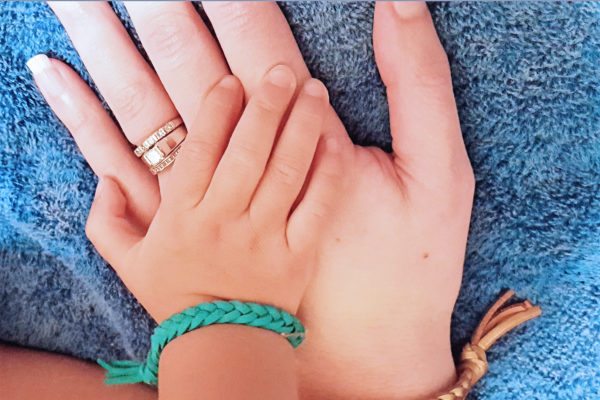
And – this next part is more important — if the first person you try to talk to doesn’t take you seriously? Find someone who will. Anyone that will listen. I will. And I’m sure there are a whole bunch of other adoptive moms that will too.
I didn’t have a support system of adoptive moms in place for our first adoption, but I do now. I talk to them on a daily, almost hourly basis sometimes. And if you think you need professional help, do not delay. Many counseling centers have therapists who actually specialize in adoption or parenting a child with special needs.
Adoption is not for the faint of heart. Adoption will test your patience, your will, your mettle, everything that makes you you, but it is so very worth it. A lot of people will say you need your mental health for the sake of your children. But you also need it for yourself.
I remember in the midst of trying to find the right medication and going to a therapy session, I texted my (same) friend that I just wanted to be normal. I wanted things to go back to how they were before — before I felt like my entire life spun out of control.
And she almost immediately texted back: “You won’t.”
Before I could get over the shock of that reply because, hello, that wasn’t the helpful or supportive response I was looking for, she texted again: “But you’ll find your new normal.”
She was right. We have found our new normal. It’s completely different than what we anticipated, and sometimes issues still come up. But even still, it’s better.
And in six weeks, we’re looking forward to finding our “new”, new normal when we welcome our newest addition.
– guest post by Mary: email || blog || Instagram


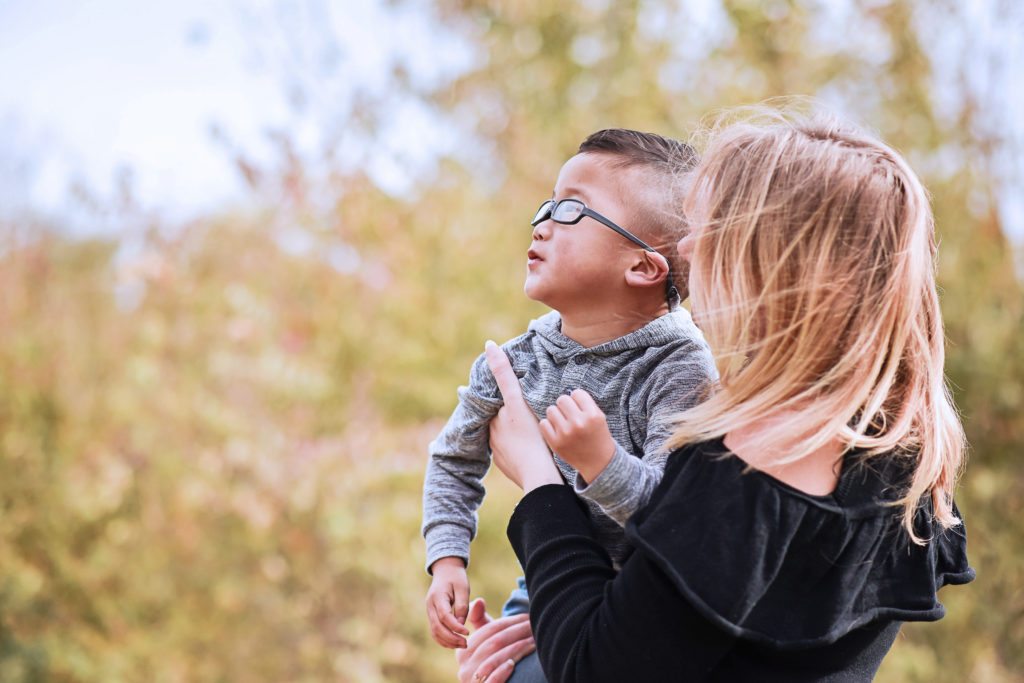























I found this helpful. I’m currently in our adoptive daughter’s birth country waiting on her visa. It’s been 8 weeks now. Half of that time has been alone, and I have definitely been battling depression, as well as difficulty bonding with my daughter. There has been no “honeymoon” phase, and I’m just going This is normal and that when we get home I won’t feel so isolated and stressed.
I have been home one year. I definitely had PADS. And I feel like it’s getting better but still there. This was very encouraging to read because I do feel like I’m the only one who has gone through this and still going through this and still waiting to feel bonded with my adoptive daughter. Hardest year of my life.
We might be traveling at the same time! We are a CCAI family adopting for the first time. We have one bio son who is 3.5 now and I had major PPD after his birth and am starting to get nervous about PAD just because I know how bad it was last time. But I’m hoping that by being aware it’s a real thing, I can recognize the signs and get help this time around. Thanks for your article. Maybe we will meet up in Guangzhou!